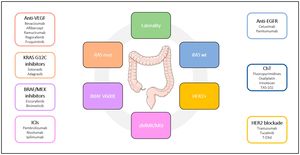Chennai: The Indian Institute of Technology (IIT) Madras has launched India’s first cancer genome database, the Bharat Cancer Genome Atlas (BCGA), aiming to boost cancer research and diagnostics throughout the country. This important initiative aims to rectify the underrepresentation of Indian genetic data within global cancer genome studies, which has historically stifled the creation of effective diagnostic kits and targeted therapies for various cancer types prevalent among the Indian population.
Inclusivity and Representation of Cancer Data
According to IIT Madras Director V Kamakoti, the country carries one of the highest cancer incidences globally, yet its genomic architecture has largely gone undocumented within international research frameworks. To address this significant gap, IIT Madras kicked off the cancer genome program back in 2020, concentrating on sequencing cancer genomes exclusive to the Indian public. Under this groundbreaking program, the researchers have successfully completed 960 whole exome sequencing analyses derived from 480 breast cancer tissue samples gathered from across India. Kamakoti emphasized the significance of the BCGA, which is expected to provide invaluable genomic insights related to Indian breast cancer cases. This resource aims to enable the classification of genetic variants implicated in early diagnostics, disease progression, and treatment outcomes.
Collaboration Enhancing Knowledge
The BCGA project came to fruition through collaborative efforts involving Karkinos Healthcare, the Chennai Breast Clinic, and the Cancer Research and Relief Trust, all located in Chennai. With researchers from IIT Madras’ Centre of Excellence on Cancer Genomics and Molecular Therapeutics playing pivotal roles, the collective endeavor was funded under the central government’s “Institutions of Eminence” initiative. S. Mahalingam, who leads the Centre, remarked on the database’s potential as a valuable asset for identifying cancer-specific biomarkers prevalent within the Indian population. This development aims not only to facilitate the early detection of breast cancers but also to assist researchers in discovering novel drug targets, paving the way for more refined treatment strategies attuned to Indian patients' specific needs.
The BCGA is heralded as the second major health-related dataset made publicly available by IIT Madras this academic year, following the recent release of data related to brain genomics. With the BCGA now accessible, researchers and clinicians both within India and globally can tap this repository for insights and data related to cancer.
Emphasis on Personalized Medicine
The establishment of this comprehensive genomic database marks a significant step toward enhancing personalized medicine practices throughout India. By tailoring cancer treatment strategies to individual genetic and molecular profiles, medical care may see substantial improvements, coupled with more favorable patient outcomes. Kamakoti expressed optimism, stating, “We hope this cancer-related data will provide deep insights on reasons leading to this deadly disease and help prevent the same with early interventions.” This approach aims to address the stark realities of cancer prevalence, with the National Cancer Registry Programme noting one out of every nine individuals across India being likely to develop cancer during their lifetime.
Advancing Cancer Research and Treatment
Mahalingam noted the BCGA’s wider applicability: it is not only intended as a national repository for breast cancer genomic data but is also set to include contributions from researchers studying various cancer types. This extensive database will help identify at-risk groups, monitor cancer progression, cultivate personalized treatment approaches, and deepen the understandings of treatment outcomes. Such measures are deemed pivotal, especially considering recent data indicating rising cancer cases as reported by the Indian Council of Medical Research (ICMR).
Dr. Venkataraman Radhakrishnan, professor of Medical Oncology at the Cancer Institute (WIA) located in Adyar, welcomed the initiative, recognizing the necessity for native genomic data to bolster Indian research. He remarked, “There is genetic heterogeneity based on ethnicity and race. So, we can't absolutely rely on western data. If we want to see what is the type of genetic genomic alteration in Indian patients, we have to sequence Indian data.” He also highlighted the necessity for more diverse geographical contributions, noting the current dataset appeared primarily representative of southern India, underlining the call for broader data representation from throughout the country.
The launch of the Bharat Cancer Genome Atlas is seen as a pivotal moment not just for IIT Madras, but also for the entire medical research community within India, marking the beginning of what is expected to be transformative advances in how cancer is understood and treated within the country.



